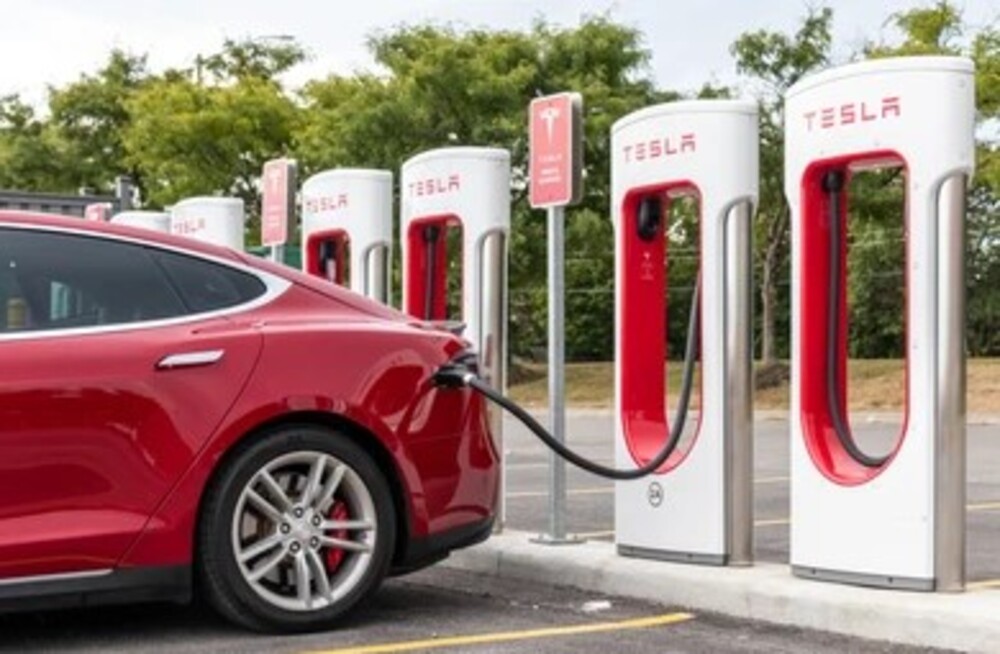Tesla’s CEO, Elon Musk, has frequently proposed opening up his EV chargers, Supercharging, network to competitors. However, he has never actually done so in the US. His business dominates the U.S. market for electric vehicles.
Now, Musk may have 7.5 billion reasons to make his words a reality.
According to U.S. administration sources, the Department of Transportation is set to finalize a rule this week that will put pressure on Tesla to install the charger used by its rivals. This charger will be an addition to its proprietary charging equipment in the EVs sold in the United States.
Biden’s subsidies won’t subside Tesla exclusive EV chargers
U.S. President Joe Biden aims to cover the country with 500,000 EV chargers in the coming years. It is five times more than 100,000 in 2021. But, Tesla faces exclusion from the $7.5 billion in subsidies if doesn’t comply with the standard EV chargers.
The network plays a key role in Biden’s strategy to combat climate change by shifting 50% of all new car sales in the United States to electric by 2030. According to proponents, a lack of chargers on American roadways has stunted the rise of EV sales and their beneficial effects on the environment.
Even though Musk has previously criticized the role of the federal government, there are many indications that Tesla is about to open its EV network as the pressure from the United States increases.
Musk is good at words but…
Tesla wrote to the Federal Highway Administration in January of last year with suggestions for the Biden administration on how to design the charging program. According to state authorities, the corporation in Ohio responded to a recent request for billing proposals from businesses. Although a final decision had not been reached, the company in Arizona informed the state that it was willing to upgrade its chargers or create new ones to comply with the regulations.
Last month in Washington, D.C., Musk met with representatives of the White House. According to Mitch Landrieu, the White House’s infrastructure expert, an EV charging program was one of the topics.
The purpose of Tesla’s charging network, according to Musk, is “not to create a walled garden and utilize it to pummel our competitors,” he said in a July 2021 earnings call, but he hasn’t publicly articulated his ideas for altering the U.S. market. The business has established a few Superchargers in Australia and Europe.
Musk loves exclusivity, and EV chargers are part of it
With roughly 40,000 chargers globally, Tesla’s U.S. Supercharger network is frequently cited as the gold standard since it is quick, dependable, and extensive.
However, the network has only been available to Tesla owners for years because of a plug that only attaches to Tesla cars, making it unavailable to anyone driving a Volkswagen, Ford, or Chevy.
Tesla owners can buy an adapter to use the “Combined Charging System” or CCS chargers, which are the U.S. standard, but non-Tesla owners are unable to use Superchargers in the same way.
Analysts stated that while opening up its networks would increase funding and revenue for Tesla, it might also reduce the uniqueness of the brand and make it more difficult for the manufacturer to maintain the network.
And here comes a $7.5 billion nationwide project to electrify highways.
U.S. EV chargers standard is CCS
The Department of Transportation will outline the final specifications next week so that they can fund all chargers for electric vehicles as part of the $7.5 billion nationwide project to electrify highways and interstates. Along with cybersecurity, those specifications will cover how many of the chargers must work in America and whose components.
With the exception of Tesla’s well-known Superchargers, practically all charging stations in the United States must use the combined charging system, or CCS, for chargers to qualify for inclusion in the National Electric Vehicle Infrastructure (NEVI) program.
The administration’s decision to codify the “basic criteria” probably will trigger the first round of investment and unleash strong competition among businesses like ChargePoint Holdings and EVgo Inc. It is a once-in-a-generation chance for these little businesses.
After it completes the standards this week, any charger that wants to be eligible for federal funds will have to adhere to the CCS requirement.

